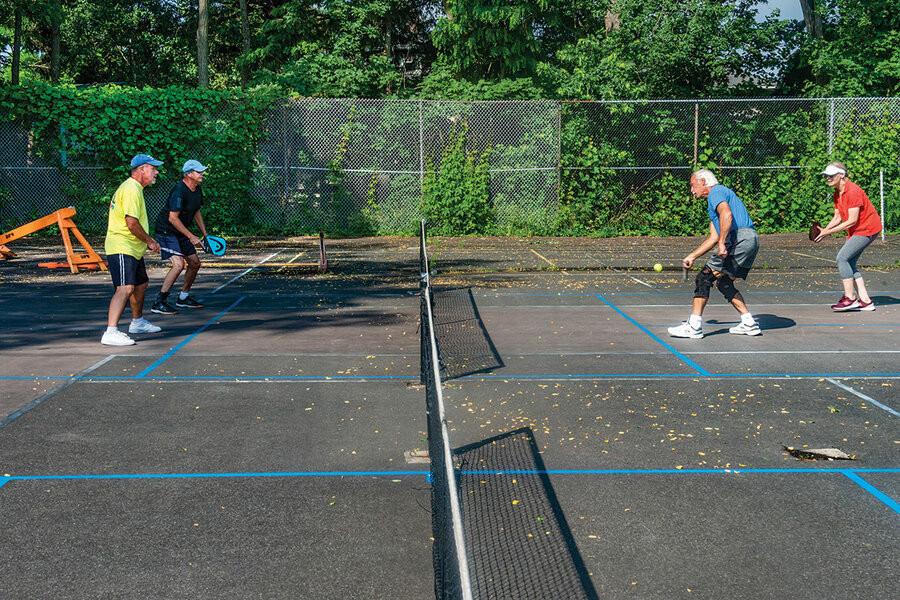
The game of soccer is played between two 11-player squads. The goal of the game is scoring goals by moving the ball across the goal-line and into the rectangular-framed goal that the opposing team defends. The match lasts 90 minutes, divided into two 45 minute halves.
The rules of soccer were developed by the Football Association of England in 1863. Today, the sport is governed by the International Federation of Association Football (FIFA), with seventeen laws that apply to all levels of play.
A number of guidelines and regulations govern the sport, in addition to the Laws of the Game. This includes the use of penalty kicks and red cards.
* Offside is an infraction committed when the referee believes that the attacking player is within the opponent's quarter of the pitch and is closer than the goalline to the ball. A goal is not usually possible from offside.
** Offside infringements are shown to the offending player by the head ref and result in one yellow card; the first offence can earn a red card. The second infraction results in expulsion of the match with no substitute.

If there is a tie after extra time, the teams take turns scoring their penalty spots in order to determine a winner. The match is decided by the first scorer.
Goals are scored in soccer by field goals, corner kicks, free kicks or penalties. A goal may be scored via field goals or corner kicks.
A typical game of soccer has two 45-minute halves and each team changes their goal at half time. The goalkeeper has to defend the goal from attacks.
The football, or soccer ball, is made from lightweight synthetic materials. It is manufactured with a distinctive black-and-white pattern that allows it to be more easily seen in snow and other water-repellent conditions.
It's also a better option than leather balls, and it tends to have more consistency in its flight and bounce. It's used in every professional match, and also in a range of amateur leagues.
There are many variations to the sport, and a variety of strategies used by coaches and managers. Below are a selection of some:

Possession- A strategy which focuses on controlling as much of the ball as possible. This can involve sending long passes or crosses over the midfield to a forward who can run onto them and score.
Long Ball – A simple tactic which requires a fast striker and accurate defense. This is a great way to control game flow.
There are many soccer events and competitions throughout the year. The FIFA World Cup attracts millions of fans and spectators each four years.
FAQ
What does Nutrition do for Your Body?
Your body can function properly if you get the proper nutrition. It is important to eat a balanced diet, rich in fruits and veggies, lean proteins, whole grain, and healthy fats.
How many hours of sleep should I get every night?
The recommended amount of sleep varies depending on age, gender, and individual needs. Adults need between 7 to 9 hours sleep each night. Children and teens typically need between 7 and 9 hours of sleep each night. However, this number drops as they get older.
Why is physical exercise important?
For our health, physical fitness is vital. To maintain our strength, flexibility and weight, as well as our cardiovascular system, we must exercise regularly. Exercise improves sleep quality, helps with stress management, increases energy and boosts self-esteem.
Statistics
- According to the Centers for Disease Control and Prevention, chronic diseases cause 7 out of 10 deaths in the U.S., and treating chronic diseases accounts for 86% of U.S. healthcare costs. (mana.md)
- Globally, 28% of adults aged 18 and over were not active enough in 2016 (men 23% and women 32%). (who.int)
- In high-income countries, 26% of men and 35% of women were insufficiently physically active, as compared to 12% of men and 24% of women in low-income countries. (who.int)
- An estimated 110,000 deaths per year could be prevented (cdc.gov)
External Links
How To
How to motivate you to exercise regularly
A fitness routine is a series of exercises that are performed over a specified time period. It can help people tone and build muscle. Regular physical activity improves cardiovascular health and reduces blood pressure, cholesterol levels, risk of heart disease and stroke, diabetes, depression, anxiety, stress, obesity, osteoporosis, and many other diseases. In addition to these benefits, regular exercise provides psychological benefits such as self-esteem, confidence, mood, energy level, sleep quality, and social interactions.
Why would you choose to make your own fitness program?
You can lose weight and improve your health by following a workout routine. Why would you want one? Let's see!
What does it mean to follow a fitness routine?
This means that you should do some type of exercise at least three times per week, such as running, swimming, biking, swimming, yoga or martial arts. This doesn't mean you have to do it for hours. Just 30 minutes can burn calories and keep your body healthy. You must stick to your plan. Do not worry if you forget a day. You can just pick up from where you left off the previous time.
How much time do I need to dedicate to my fitness routine?
Your level of busyness will determine how long it takes. For moderate exercise, it takes 20-30 minutes. However, if you're new to exercising, try starting slowly with five or 10 minutes first. After you get used to it, gradually increase the duration.